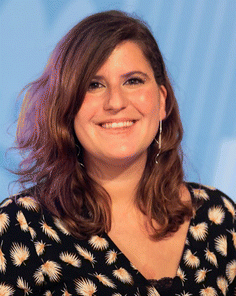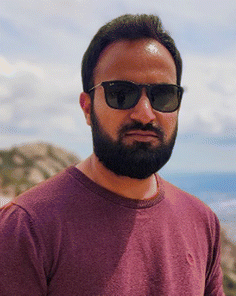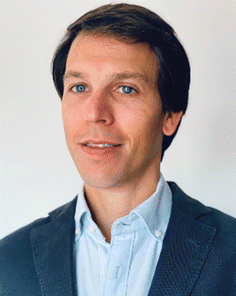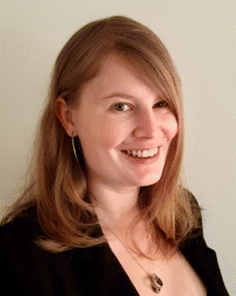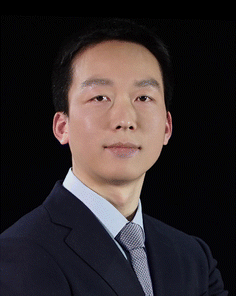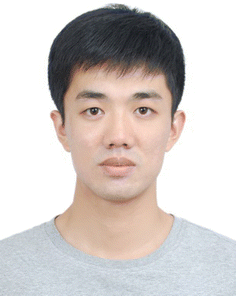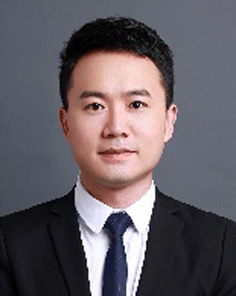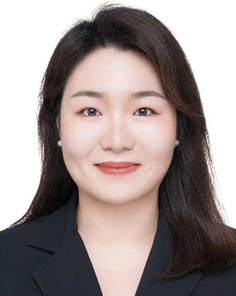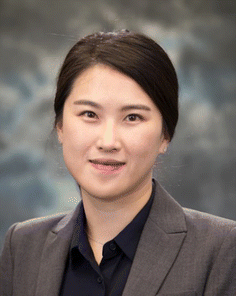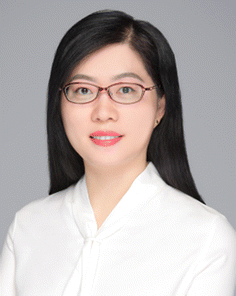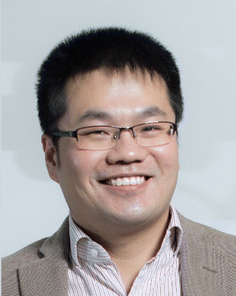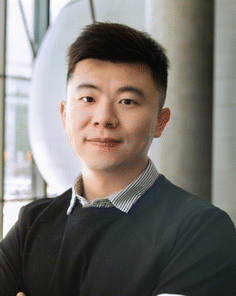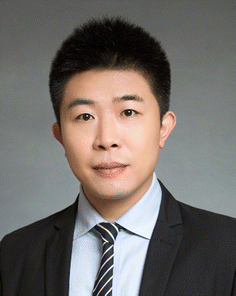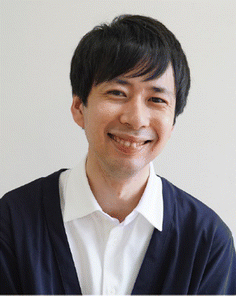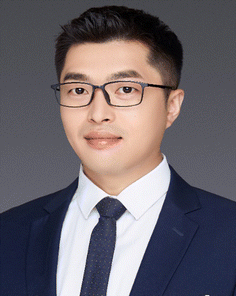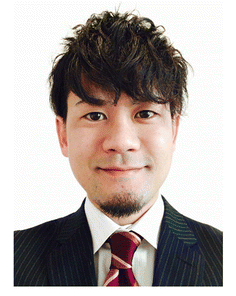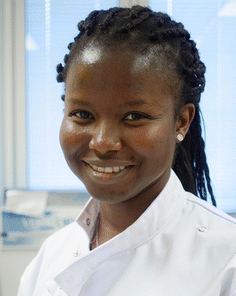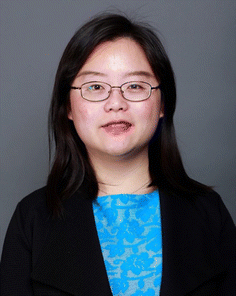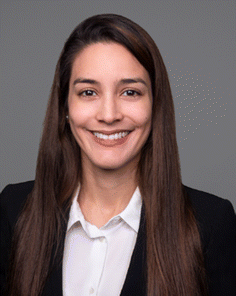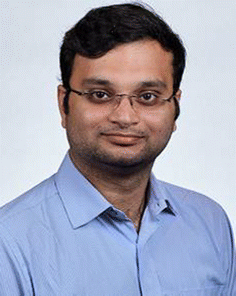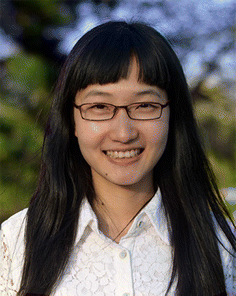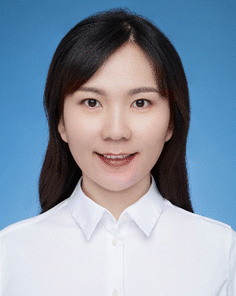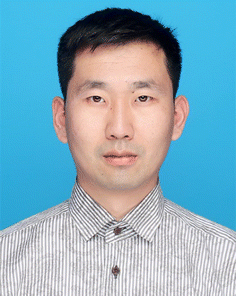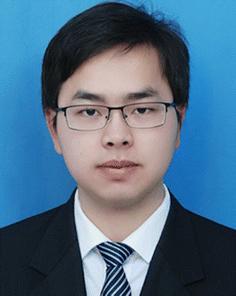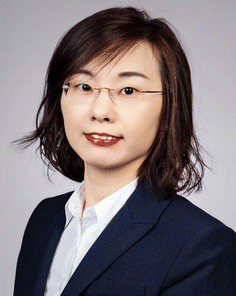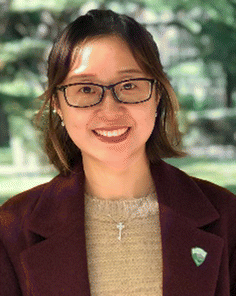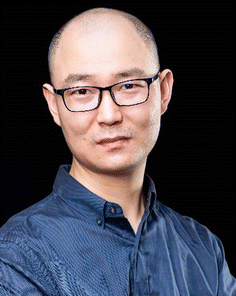Contributors to the Journal of Materials Chemistry B Emerging Investigators 2023 collection
Abstract
Our 2023 Emerging Investigators themed collection gathers some of the best research being conducted by scientists in the early stages of their independent career. Each contributor was recommended as carrying out work with the potential to influence future directions in materials chemistry. Congratulations to all the researchers featured, we hope you enjoy reading this collection.
Dorleta Jiménez de Aberasturi
Dr Dorleta Jiménez de Aberasturi is an Ikerbasque Research Fellow leading the Hybrid Biofunctional Materials group at CIC biomaGUNE (San Sebastián). She received a joint PhD between the Philipps University of Marburg (Germany) and the University of the Basque Country (Spain) in 2013, under the supervision of Prof. Teofilo Rojo, Dr Idoia Ruiz de Larramendi, and Prof. Wolfgang Parak. She trained as a postdoc in the group of Prof. L. M. Liz-Marzán, acquiring a broad expertise in the synthesis, functionalization, and characterization of hybrid nanostructured materials for bioapplications. During the most recent years she has focused her interests on the biofabrication of 3D in vitro models.
Her contribution to the 2023 Journal of Materials Chemistry B Emerging Investigators collection can be read at DOI: https://doi.org/10.1039/D3TB01480K.
Dr Akash Bachhuka was awarded a PhD in materials science and engineering from the University of South Australia (UniSA) in 2016. During this time, his study focused on understanding the mechanisms underpinning cell–surface interactions. Following his PhD, he worked as a postdoctoral researcher at the University of Adelaide's ARC Centre of Excellence for Nanoscale BioPhotonics (CNBP), where he developed microstructured optical fiber-based chemical sensors and biosensors. As an emerging research leader, he has published more than 45 research papers and book chapters. In 2020, he was awarded the prestigious “Juan de la Cierva incorporation” fellowship and was ranked 6th in Materials Science and Engineering in Spain. More recently, in 2022, he was awarded the Marie Curie Cofund (BP21) individual fellowship and was ranked among the Top 10 researchers in Engineering, Technology, and Architecture in Catalunya, Spain. His multidisciplinary research focuses on nanoengineered surfaces for a variety of applications, including medical implants, biosensors, and chemical sensors.
His contribution to the 2023 Journal of Materials Chemistry B Emerging Investigators collection can be read at DOI: https://doi.org/10.1039/D3TB01040F.
Dr João Borges is a senior researcher at CICECO – Aveiro Institute of Materials in the Department of Chemistry at the University of Aveiro, Portugal. He graduated and received his PhD in chemistry from the University of Porto in 2008 and 2013, respectively. From 2013 to 2018, he was a postdoctoral fellow at the University of Minho and University of Aveiro. His research focuses on the molecular design, synthesis and development of supramolecular multicomponent biomaterials, by combining polysaccharides, self-assembling peptides and nucleic acids, to be used as bioinstructive matrices to control cell functions and as platforms for controlled drug/therapeutics delivery.
His contribution to the 2023 Journal of Materials Chemistry B Emerging Investigators collection can be read at DOI: https://doi.org/10.1039/D3TB00796K.
Dr Saffron Bryant is a research fellow within the School of Science at RMIT University, Australia. After finishing a bachelor’s degree in biomedical science, Saffron completed a PhD in physical chemistry in 2017 at the University of Sydney. Saffron's main research focus is applying deep eutectic solvents and ionic liquids to real world problems, including cryopreservation, antimicrobial treatments, and advanced materials synthesis. Her combined background in biomedical science and physical chemistry makes her ideally suited for exploring translational technologies for health-related applications.
Her contribution to the 2023 Journal of Materials Chemistry B Emerging Investigators collection can be read at DOI: https://doi.org/10.1039/D3TB00554B.
Dr Mingming Ding received his BS degree in polymer materials and engineering and PhD degree in materials science from Sichuan University. After postdoctoral research at Sichuan University, he became an associate professor and professor at the College of Polymer Science and Engineering in Sichuan University. His research interests include synthesis and hierarchical self-assembly of biomedical polymers for biomimicry, biosensing and controlled delivery applications.
His contribution to the 2023 Journal of Materials Chemistry B Emerging Investigators collection can be read at DOI: https://doi.org/10.1039/D2TB02686D.
Dr Wei Feng received his PhD degree in chemistry from Donghua University in 2016. Then, he spent a postdoctoral period in the University of Chicago and Shanghai Institute of Ceramics, Chinese Academy of Sciences. He is now a professor at the School of Life Sciences, Shanghai University. His current research interests include the design and fabrication of multifunctional 2D nanomaterials for versatile biomedical applications, especially cancer theranostics and brain-disease treatment.
His contribution to the 2023 Journal of Materials Chemistry B Emerging Investigators collection can be read at DOI: https://doi.org/10.1039/D3TB00209H.
Dr Weisheng Guo has been a professor in the School of Biomedical Engineering at the Guangzhou Medical University since 2018. He received his PhD in materials science at Tianjin University in 2015. He received research training at the National Institutes of Health (NIH) in the US as a joint PhD student for 2 years. Our research goal is to develop cellular bioengineering nanomaterials by leveraging the power of synthetic materials chemistry and synthetic biology to achieve potent immune therapy and immunity evaluation to cancers, autoimmune diseases, and atherosclerosis. Dr Guo as the first-author/corresponding author has published more than 50 papers in the top journals in the field, such as Nature Nanotechnology, Science Advances, Nature Communications, Advanced Materials, ACS Nano, Advanced Functional Materials, and Nano Letters.
His contribution to the 2023 Journal of Materials Chemistry B Emerging Investigators collection can be read at DOI: https://doi.org/10.1039/D3TB00711A.
Dr Lin Huang received her PhD in biomedical engineering from Shanghai Jiao Tong University, China. Currently, she is a senior research fellow (principal investigator) at Shanghai Chest Hospital, Shanghai Jiao Tong University School of Medicine, China. Her research interests focus on the development of novel materials for in vitro diagnostics based on various analytical methods.
Her contribution to the 2023 Journal of Materials Chemistry B Emerging Investigators collection can be read at DOI: https://doi.org/10.1039/D3TB01076G.
Dr Yeongseon Jang is an assistant professor of the Department of Chemical Engineering at the University of Florida, leading a research team to develop bioinspired materials made of polymers and proteins. She received her BS degree and PhD degree in chemical and biological engineering at Seoul National University in 2008 and 2013. Before joining the University of Florida, she did her postdoctoral training in chemical and biomolecular engineering at the University of Pennsylvania and Georgia Institute of Technology under the supervision of Profs. Daeyeon Lee, Daniel A. Hammer, and Julie Champion. Her current research focuses on the bottom-up construction of artificial cells by self-assembly of recombinant fusion proteins with the assessment of their therapeutic potential and subcellular processing mechanisms. Dr Jang is also devoted to contributing to society by mentoring students from K-8 to the postdoctoral level to guide and motivate next-generation scientists and researchers in STEM.
Her contribution to the 2023 Journal of Materials Chemistry B Emerging Investigators collection can be read at DOI: https://doi.org/10.1039/D3TB01103H.
Dr Yanyan Jiang completed her PhD in Prof. Martina Stenzel’s group, in the School of Chemical Engineering at the University of New South Wales, Australia in 2016. She was awarded (2016) a Japan Society for the Promotion of Science (JSPS) Postdoctoral Research Fellowship at Kyoto University under the supervision of Prof. Itaru Hamachi. Since 2018, she has been appointed as a full professor of materials science and engineering at Shandong University. Her research interests are in the synthesis of functional nanoparticles serving as anti-cancer drug carriers, biosensors, nanoenzymes, and theoretical studies of the mechanism and properties of these nanoparticles.
Her contribution to the 2023 Journal of Materials Chemistry B Emerging Investigators collection can be read at DOI: https://doi.org/10.1039/D3TB01376F.
Dr Bo Li is currently an assistant professor in the Department of Mechanical Engineering, Kennesaw State University, USA. He received his PhD in materials science and engineering from the Georgia Institute of Technology in 2015. From 2015 to 2020, he was a postdoctoral fellow at the University of Illinois at Urbana-Champaign. His research aims to develop self-assembled electronically active biomaterials for artificial intelligence and next-generation electronics, including (a) understanding the charge transport in the self-assembled systems and (b) controlling the self-assembly under non-equilibrium conditions. His research directly addresses these fundamental scientific issues by leveraging a unique set of skills in innovative materials synthesis and characterization.
His contribution to the 2023 Journal of Materials Chemistry B Emerging Investigators collection can be read at DOI: https://doi.org/10.1039/D3TB00701D.
Dr Bowen Li is an assistant professor in the Leslie Dan Faculty of Pharmacy at the University of Toronto, where his laboratory focuses on harnessing biomaterials combined with artificial intelligence and automated robotic platforms to develop delivery systems for engineered, bespoke RNA cargos including mRNA, circRNA, and gene editing tools. Dr Li received his PhD in bioengineering from the University of Washington in Seattle, followed by postdoctoral training under the supervision of Profs. Daniel Anderson and Robert Langer at MIT. Dr Li currently holds the Canada Research Chair in RNA Vaccines and Therapeutics.
His contribution to the 2023 Journal of Materials Chemistry B Emerging Investigators collection can be read at DOI: https://doi.org/10.1039/D3TB00649B.
Dr Xueguang Lu is currently a principal investigator at the Institute of Chemistry, Chinese Academy of Sciences, where his research team is focused on nucleic acid-based vaccines and therapeutics for treating infectious diseases and cancer. He received his BS degree in chemistry from Beijing University of Chemical Technology under the supervision of Prof. Jiaxi Xu. He then obtained PhD in chemistry under the guidance of Prof. Ke Zhang from Northeastern University (Boston). He completed his postdoctoral fellowship at the Massachusetts Institute of Technology, working with Prof. Robert Langer.
His contribution to the 2023 Journal of Materials Chemistry B Emerging Investigators collection can be read at DOI: https://doi.org/10.1039/D3TB00516J.
Dr Masahiko Nakamoto is an assistant professor in the Division of Applied Chemistry at Osaka University (Japan). He received his PhD in 2016 from Kyushu University (Japan) under the supervision of Prof. Yu Hoshino and Prof. Yoshiko Miura. From 2016 to 2020, he carried out postdoctoral research with Prof. Kenneth J. Shea at the University of California, Irvine (USA). In 2020, he moved to his current position in the group of Prof. Michiya Matsusaki. His research interests include engineering of bio-inspired polymer materials with intrinsic affinity for biological substances and/or out-of-equilibrium functionality based on system chemistry.
His contribution to the 2023 Journal of Materials Chemistry B Emerging Investigators collection can be read at DOI: https://doi.org/10.1039/D3TB00638G.
Dr Dalong Ni received his PhD degree in 2016 from the Shanghai Institute of Ceramics, Chinese Academy of Sciences (SICCAS), followed by postdoctoral training in the Department of Radiology at the University of Wisconsin-Madison. At present, he is a full professor of the Shanghai Jiao Tong University School of Medicine Affiliated Ruijin Hospital. His research interests focus on nano-repair medicine.
His contribution to the 2023 Journal of Materials Chemistry B Emerging Investigators collection can be read at DOI: https://doi.org/10.1039/D2TB01038K.
Dr Akihiro Nishiguchi is a biomaterial scientist working on functional polymeric hydrogels in the field of medical materials, tissue engineering, regenerative medicine, and drug delivery systems. He is currently a principal researcher in the Research Center for Macromolecules and Biomaterials, National Institute for Materials Science (NIMS). He received his PhD from Osaka University in 2015 under the supervision of Prof. Mitsuru Akashi. Between 2015–2017, he worked as a postdoctoral researcher with Prof. Martin Moeller at the DWI Leibniz-Institute for Interactive Materials. In 2017, he moved to NIMS (polymeric biomaterials group). He currently focuses on tissue regeneration, tissue adhesion, supramolecular chemistry, and tissue reconstruction using advanced medical hydrogels.
His contribution to the 2023 Journal of Materials Chemistry B Emerging Investigators collection can be read at DOI: https://doi.org/10.1039/D3TB00424D.
Dr Sybil Obuobi is an independent researcher at UiT The Arctic University of Norway (Tromsø, Norway). She received her PhD in 2018 from the National University of Singapore (Singapore). She then joined the Department of Pharmacy having won a Marie Curie Individual Fellowship for her project ‘NANOZID’ in 2019. She is currently a project leader funded by Tromsø Research Foundation's Start-up Grant since 2022. Her interests include the development of lipid/nucleic acid-based drug delivery systems and their applications against microbial infections and for use in chronic wound management. She was a recipient of an Otto Bayer Fellowship (2017) and was recently recognized as the Young Researcher of the Year (Faculty of Health, UiT The Arctic University of Norway) in 2021.
Her contribution to the 2023 Journal of Materials Chemistry B Emerging Investigators collection can be read at DOI: https://doi.org/10.1039/D3TB00704A.
Dr Siyuan Rao is currently an assistant professor in the Department of Biomedical Engineering and a core faculty member in the Neuroscience&Behavior Program at UMass Amherst. She started her Neurobiological Interfaces Lab (https://www.syraolab.com) in January 2021. Dr Rao obtained her PhD in material physics and chemistry with Prof. Yan Xiang at Beihang University in 2015 and completed her postdoctoral training in neuroengineering and bioelectronics with Profs. Polina Anikeeva and Guoping Feng at MIT in 2020 with a Simons Postdoctoral Fellowship and NIH K99 award. Her team is developing new engineering tools to facilitate the investigation of neurobiological interfaces. She is the awardee of the NIH K99/R00 grant (2019), NARSAD BBRF Young Investigator Grant (2021), AFOSR Young Investigator Program (2022) and NSF CAREER Program (2023).
Her contribution to the 2023 Journal of Materials Chemistry B Emerging Investigators collection can be read at DOI: https://doi.org/10.1039/D3TB00710C.
Dr Viviana Rincón Montes earned her bachelor's degree in electronics and computer engineering with honours at the Instituto Tecnológico y de Estudios Superiores de Monterrey (Mexico) in 2013. She completed her master's degree in biomedical engineering in 2016 and achieved a Dr Ing. degree in neuroelectronics with Summa Cum Laude recognition at the RWTH Aachen University (Germany) in 2021. She is currently a junior group leader of the ‘In vivo Neuroelectronics’ group at the Institute of Bioelectronics at Forschungszentrum Jülich in Germany. Her research interests focus on the development of stealth neurotechnology for the restoration of lost sensory-motor functions.
Her contribution to the 2023 Journal of Materials Chemistry B Emerging Investigators collection can be read at DOI: https://doi.org/10.1039/D3TB01191G.
Dr Soumik Siddhanta is an assistant professor at the Department of Chemistry, Indian Institute of Technology Delhi (IIT Delhi), India. Before joining IIT Delhi, he was a postdoctoral fellow at Johns Hopkins University, USA. He completed his undergraduate studies at the University of Delhi and enrolled in an integrated master's and PhD program in materials science from JNCASR, Bangalore, India. His research interests include molecular imaging, vibrational spectroscopy, plasmonics, and biophotonics. His research is focused on harnessing the potent combination of engineered plasmonic nanoprobes and label-free plasmon-enhanced vibrational spectroscopy for diagnosis, imaging, manipulation, and control of biological structure and function. He was the recipient of the Indo-US Science and Technology Forum (IUSSTF) Student Research Fellowship in 2014, and the American Society for Laser Medicine & Surgery (ASLMS) Research Grant, 2016–2017. At IIT Delhi, he has been the recipient of research grants from the Science and Engineering Research Board (SERB) and the Council of Scientific and Industrial Research (CSIR), Govt. of India.
His contribution to the 2023 Journal of Materials Chemistry B Emerging Investigators collection can be read at DOI: https://doi.org/10.1039/D3TB00980G.
Dr Yu Tao is a professor at Sun Yat-sen University. She obtained her BS degree from Nanjing Normal University in 2009, and received her PhD degree in inorganic chemistry and chemical biology from the Chinese Academy of Sciences in 2015. She then did her postdoctoral training at the City College of New York and Columbia University from 2015 to 2018. Her research interests are in biomaterials, nanotechnology, and tissue engineering.
Her contribution to the 2023 Journal of Materials Chemistry B Emerging Investigators collection can be read at DOI: https://doi.org/10.1039/D3TB00708A.
Dr Jingjing Wan received her bachelor's and master's degrees in chemistry from Fudan University and PhD in biochemistry from the University of Queensland. Then, she started a postdoctoral position at the University of Queensland in 2015. She is now a group leader in the School of Chemistry and Molecular Engineering, East China Normal University. Her research interests include the design of ultra-sensitive analytical tools for in vitro/vivo detection of biomolecules, and the chemistry and biology of peptides.
Her contribution to the 2023 Journal of Materials Chemistry B Emerging Investigators collection can be read at DOI: https://doi.org/10.1039/D3TB00766A.
Dr Chengyuan Wang completed his PhD in 2015 with Prof. Qichun Zhang in materials science and engineering from Nanyang Technological University, Singapore, and worked as a postdoctoral researcher at RIKEN, Japan. Afterwards, he performed research as an Alexander von Humboldt Research Fellow in the University of Tübingen, Germany. Since 2021, he has been a professor in the School of Chemistry and Chemical Engineering at Anhui University. His research focuses on the design, synthesis and application of organic semiconducting materials for optoelectronic devices, and organic fluorescent probes for biological imaging.
His contribution to the 2023 Journal of Materials Chemistry B Emerging Investigators collection can be read at DOI: https://doi.org/10.1039/D3TB01034A.
Dr Xianwen Wang obtained his PhD degree under the guidance of Prof. Liang Cheng and Prof. Zhuang Liu in the Institute of Functional Nano & Soft Materials (FUNSOM) at Soochow University in 2021. Then he joined Anhui Medical University as a professor and doctoral supervisor. His current research interest is the development of multifunctional nanomaterials for biomedical applications.
His contribution to the 2023 Journal of Materials Chemistry B Emerging Investigators collection can be read at DOI: https://doi.org/10.1039/D3TB01170D.
Dr Xueju “Sophie” Wang is currently an assistant professor in Materials Science and Engineering and affiliated with Biomedical Engineering and the Institute of Materials Science at the University of Connecticut. She obtained her PhD degree in mechanical engineering at the Georgia Institute of Technology in 2016 and was a postdoctoral scholar at Northwestern University from 2016 to 2018. Her research interests lie in the intersection of active materials, mechanics, and functional structures for applications ranging from soft robotics to flexible electronics. She is the recipient of the NSF CAREER Award, NIH Trailblazer Award, EML Young Investigator Award, ACS PMSE Young Investigator Award, and ASME ORR Early Career Award.
Her contribution to the 2023 Journal of Materials Chemistry B Emerging Investigators collection can be read at DOI: https://doi.org/10.1039/D3TB01167D.
Dr Jinfeng Zhang received her MSc degree in organic chemistry in 2013 from the Technical Institute of Physics and Chemistry, Chinese Academy of Sciences and her PhD in the Department of Biology and Chemistry at City University of Hong Kong, in 2017. Currently, she is an associate professor in the School of Life Sciences, Beijing Institute of Technology, China. Her research mainly focuses on the design and fabrication of self-assembled nanomaterials for drug delivery, bioimaging, and treatment of various diseases including cancer, inflammation-induced injury as well as cardiovascular and neurodegenerative diseases.
Her contribution to the 2023 Journal of Materials Chemistry B Emerging Investigators collection can be read at DOI: https://doi.org/10.1039/D3TB00668A.
Dr Zheng Zhao is an assistant professor at the Chinese University of Hong Kong, Shenzhen. He received his PhD from the Shanghai Institute of Organic Chemistry, Chinese Academy of Science in 2014. He conducted his postdoctoral research at the Hong Kong University of Science and Technology from 2015 to 2019. In 2020, he joined the School of Chemistry and Chemical Engineering at Southeast University. In 2021, he moved to the Chinese University of Hong Kong, Shenzhen, and worked as an assistant professor and a Presidential Young Scholar. His current research focuses on luminescent functional materials and their bioapplications.
His contribution to the 2023 Journal of Materials Chemistry B Emerging Investigators collection can be read at DOI: https://doi.org/10.1039/D3TB00219E.
| This journal is © The Royal Society of Chemistry 2023 |

